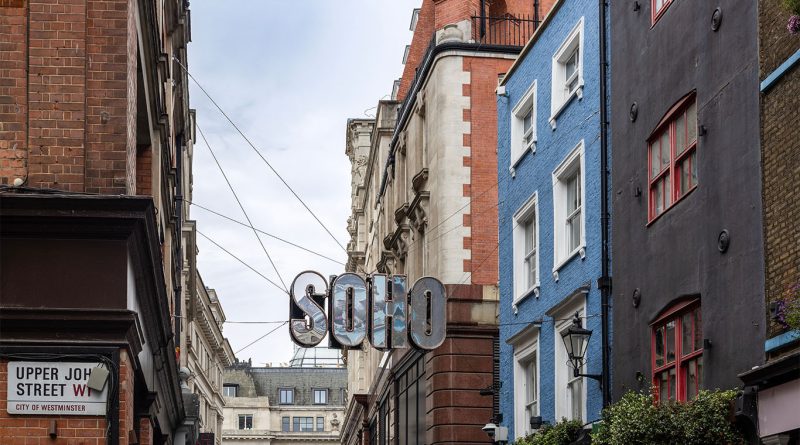Ashton Kutcher joins Soho House board after £2 Billion buyout
Subscribe to our free newsletter today to keep up to date with the latest retail news.
Soho House, the members-only hospitality brand known for its celebrity clientele and global network of stylish venues, has returned to private ownership in a £2 billion deal backed by a consortium led by MCR Hotels and private equity firm Apollo. As part of the agreement, actor and investor Ashton Kutcher will join the board of directors, marking a high-profile shift in leadership following years of fluctuating fortunes on the public market.
The company, founded in London in 1995, operates 46 private members’ clubs across Europe, North America and Asia, alongside co-working spaces and luxury hospitality properties. It has long positioned itself as a sanctuary for creatives and culture-makers, boasting a guest list that has included the Duke and Duchess of Sussex, Kendall Jenner and Kate Moss. However, in the years following its 2021 listing on the New York Stock Exchange, the brand struggled to maintain both profitability and its carefully cultivated sense of exclusivity.
A strategic return to private ownership
The £2 billion transaction values Soho House shares at $9 apiece, an 18 percent premium on their closing price before the announcement, but still well below their peak of $14.21 in August 2021. The move takes the company off the public market just four years after its IPO, during which time it faced growing pressure to deliver quarterly financial results while managing costly global expansion.
MCR Hotels, the third-largest hotel owner in the United States, leads the acquiring group. The firm owns high-profile properties such as the TWA Hotel at JFK Airport and London’s BT Tower. Also backing the deal is Apollo Global Management, a major player in private equity. MCR’s chief executive Tyler Morse, who also joins the Soho House board, stated the firm’s admiration for Soho House’s ability to bring together global cultures into what he described as “a fabric” of shared experiences. Morse confirmed that four new clubs are scheduled to open soon.
Notably, existing shareholders including founder Nick Jones and Ivy Collection restaurant group chairman Richard Caring will retain their stakes, reflecting a level of continuity amid the broader restructuring. The group’s decision to go private again signals a desire to operate with longer-term vision and reduced scrutiny, which some analysts argue is essential in an industry where capital-intensive projects take years to deliver returns.
Rebuilding brand value amid exclusivity questions
Soho House’s rapid expansion has included launches in Bangkok, Mykonos, Bodrum and Miami, alongside new business lines such as Soho Works, its co-working brand. While these moves bolstered revenue, they also prompted criticism that the company’s original appeal which is rooted in exclusivity and curated community, had begun to fade.
Industry commentators note that the club’s application process, once firmly focused on individuals in creative industries, has gradually shifted toward a more ambiguous “creative-minded” definition. Membership fees, which can cost thousands per year, have increasingly been seen as failing to deliver a sufficiently differentiated experience, particularly in urban markets crowded with alternative luxury offerings.
Susannah Streeter, head of money and markets at Hargreaves Lansdown, said that while the appointment of Ashton Kutcher may draw attention, “the chain would need a bit more than celebrity stardust to cement its long-term future.” She noted that economic headwinds are pressuring hospitality businesses, with discretionary spending under strain among even affluent demographics.
The influence of celebrity and leadership change
Kutcher’s appointment is widely seen as an effort to refresh the brand’s relevance and amplify its appeal to younger, affluent consumers. Known for his early investments in companies like Airbnb and Spotify, Kutcher brings more than star power, having established himself as a serious technology and consumer brand investor. His presence on the board is expected to aid Soho House’s strategic positioning, especially as it navigates new digital and experiential initiatives.
Chief executive Andrew Carnie welcomed the return to private ownership, describing it as a reflection of shareholder confidence. He emphasised the company’s renewed focus on resilience and sustainable growth. “We continue to be guided by our members and grounded in the spirit that makes Soho House so special” Carnie said, while thanking the company’s teams for their efforts during a period of considerable transformation.
Despite the leadership reshuffle, founder Nick Jones remains involved, maintaining the legacy link that continues to underpin the club’s unique positioning.
A delicate balance between growth and identity
For Soho House, the challenge now lies in re-establishing its identity while continuing to grow in an increasingly competitive market. According to Saxon Moseley, head of leisure and hospitality at RMS UK, the brand’s difficulties on the public market were partly due to its long-term capital model clashing with short-term investor expectations. “It takes time and a lot of capital expenditure,” he said, suggesting that the demands of quarterly reporting were never a good fit.
Moseley also pointed to tensions around membership policy, noting that changes to eligibility criteria may have eroded the trust of long-standing members who felt the brand had lost its edge.
As Soho House embarks on this new chapter, industry watchers will be assessing whether a shift away from public markets and toward a more controlled growth strategy can restore the prestige that once defined the brand.
Sources:
